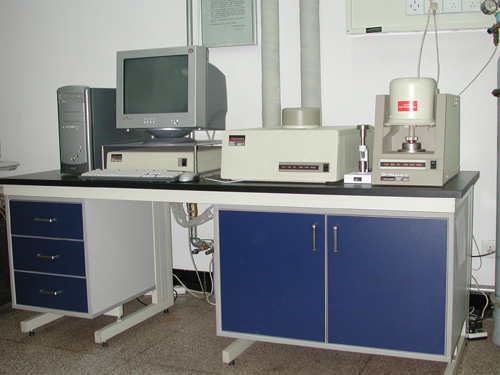|
|
[Home] - [Facilities] |
| name: DTA | ||
| Model: PE DSC7 | ||
| Materials: DTA | ||
| Size: PE DSC7 | ||
| Category: Experimental equipment | ||
| Pic: | ||
 | ||
| Content: | ||
Differential scanning calorimetry or DSC is a thermoanalytical technique in which the difference in the amount of heat required to increase the temperature of a sample and reference are measured as a function of temperature. Both the sample and reference are maintained at nearly the same temperature throughout the experiment. Generally, the temperature program for a DSC analysis is designed such that the sample holder temperature increases linearly as a function of time. The reference sample should have a well-defined heat capacity over the range of temperatures to be scanned. The main application of DSC is in studying phase transitions, such as melting, glass transitions, or exothermic decompositions. These transitions involve energy changes or heat capacity changes that can be detected by DSC with great sensitivity. |
|
|
||
|
Copyright: © Group EX4,Key Laboratory of Extreme Conditions Physics,Chinese Academy of Science Tel: 8610-82649880 E-mail:dingdawei@aphy.iphy.ac.cn |